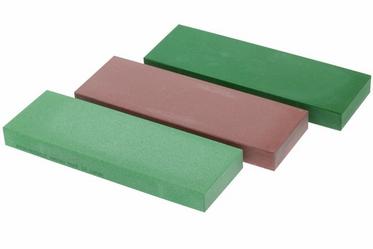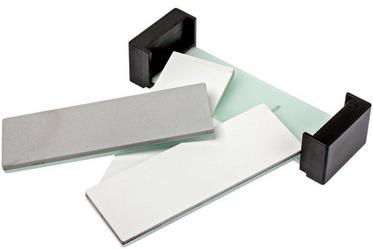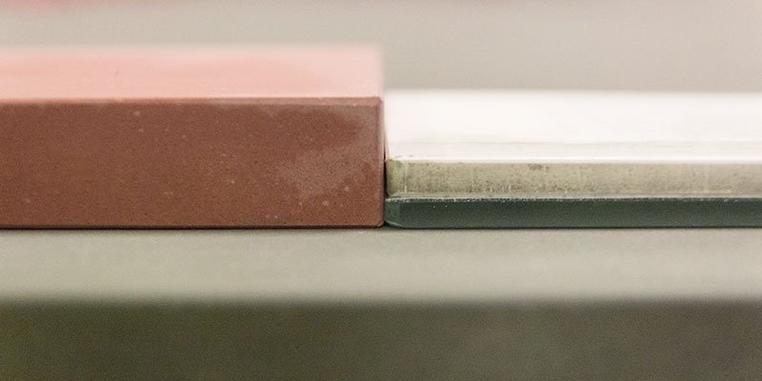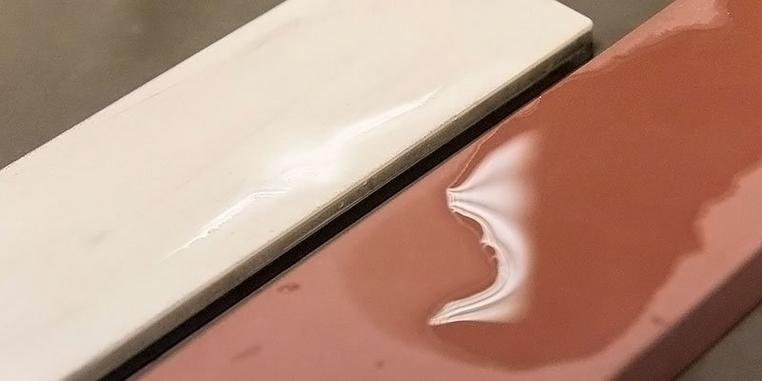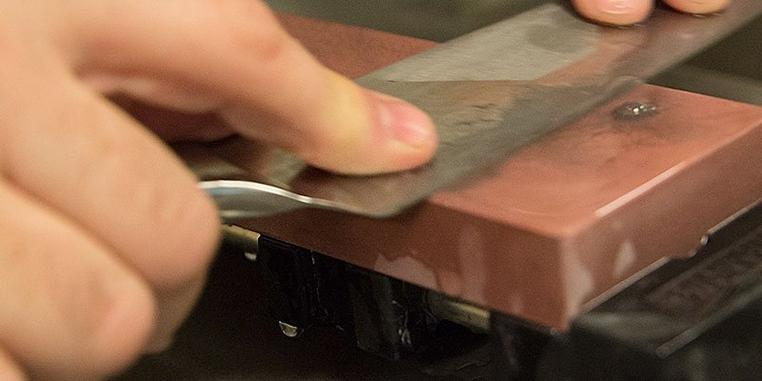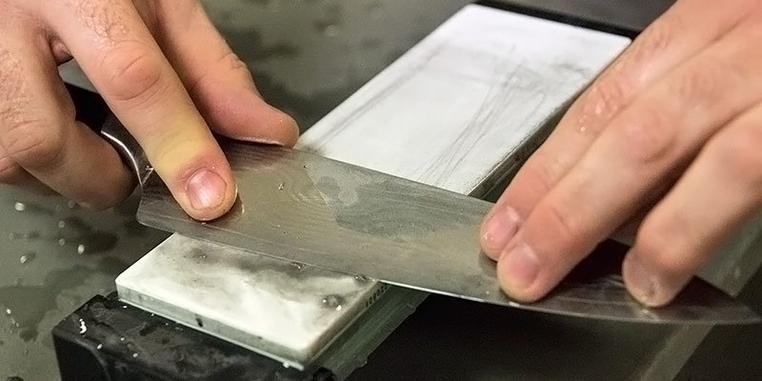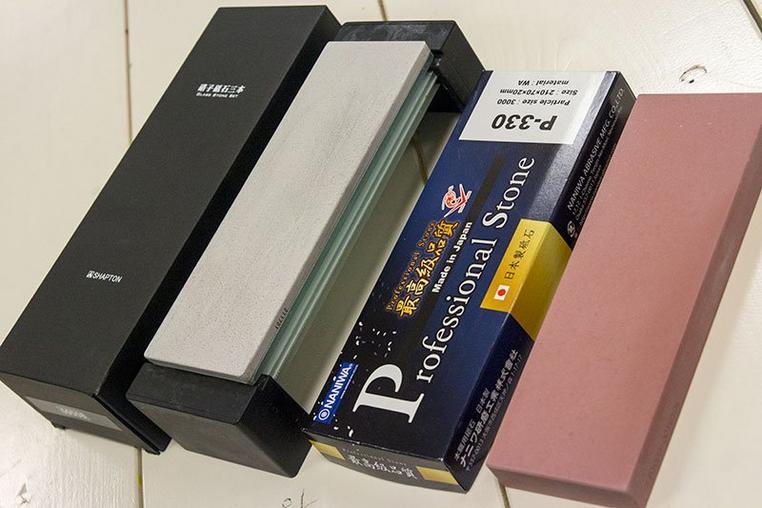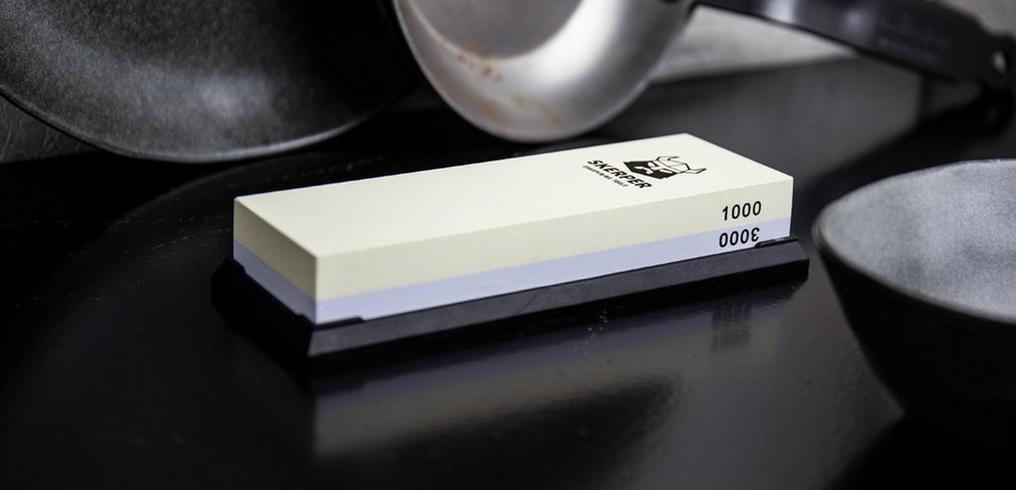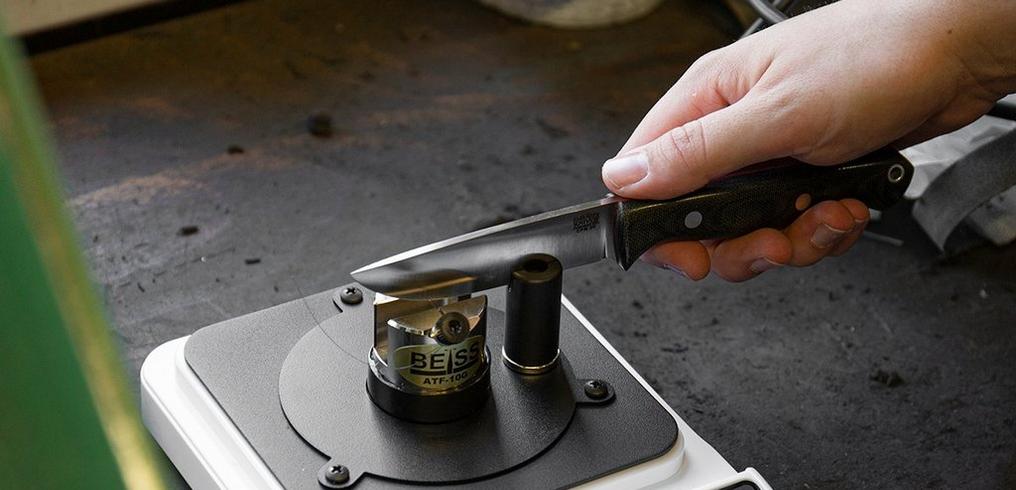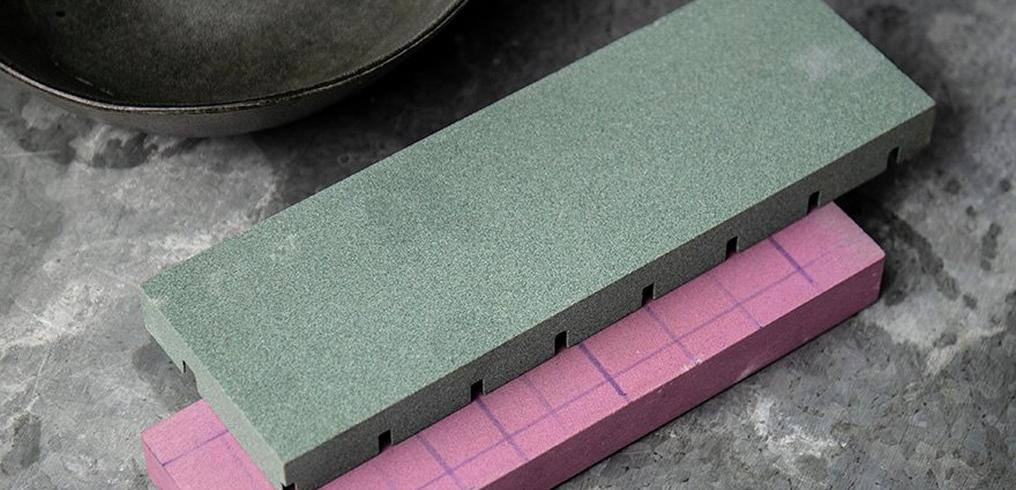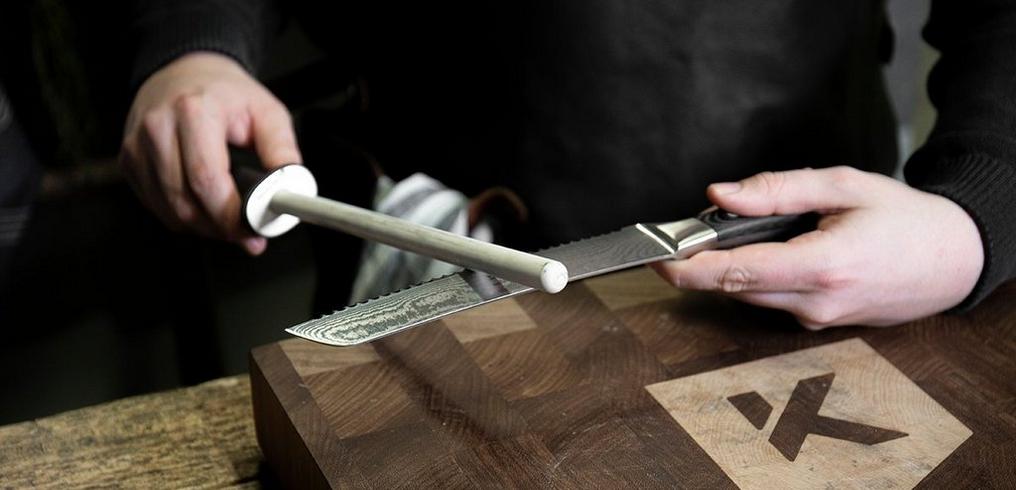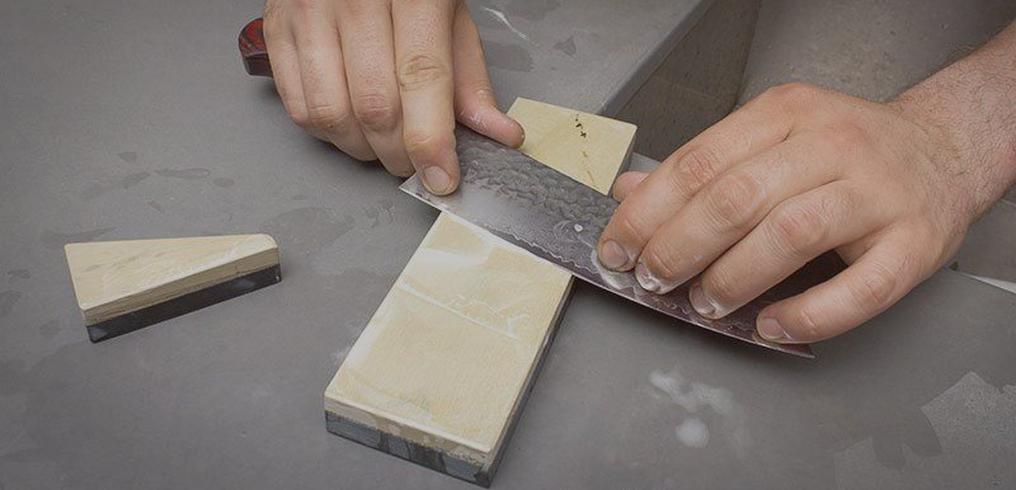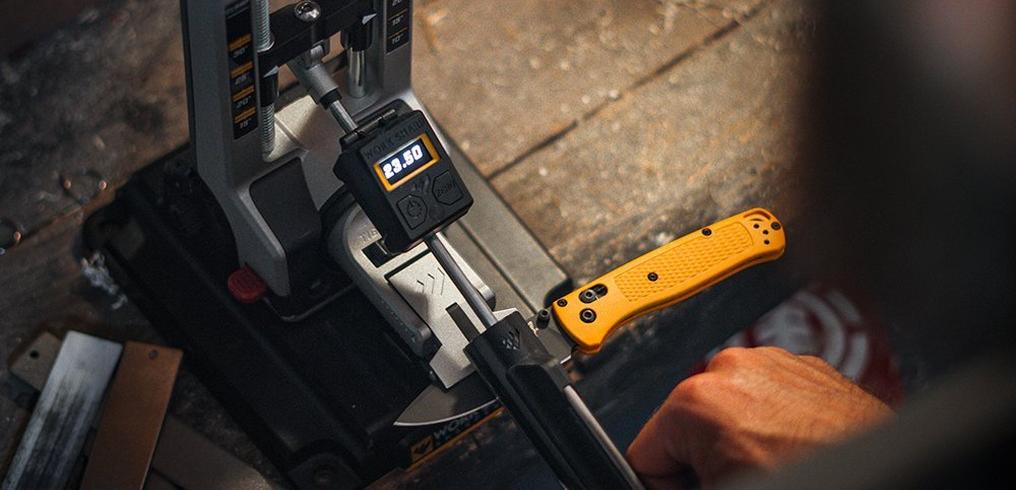Naniwa vs Shapton
When it comes to Japanese sharpening stones, two brands are at the top of the game: Naniwa and Shapton. They seem very similar in many respects but, there definitely are some differences. We will explain the exact differences between Naniwa and Shapton. This is definitely not a scientific comparison of some sort, but we have tested both brands and will let you know which differences we have encountered. We have used the Naniwa Professional series and the Shapton Glass Stones HR series, because these series give a good picture of the average sharpening properties of the brands.
What do the stones look like?
Let's start off with the looks! The Naniwa stones look fairly traditional. A rectangular stone made of homogeneous material in one colour. They have chosen a very different design than Shapton. Their white-grey sharpening stones are mounted on a plate of tempered glass. Behind the glass they have indicated the grit size. The stone does look luxurious and is a treasure for your kitchen!
What are the dimensions?
Both stones are 21.0 x 7.0 cm’s. The difference lies in the thickness. The Naniwa Professionals are 2.0 cm’s thick, while Shapton stones are only 1.1 cm’s. The glass part is about 0.5 cm’s, which effectively means you have a stone of about 0.6 cm thick. This means the Naniwa-stones are about three times as thick.
A thicker stone usually means a longer lifespan. Does the Naniwa stone last three times longer than a stone from Shapton? No. Because the Shapton-stone is mounted on a glass plate, you can use the full 0.6 cm stone. The Naniwa Professionals can’t be used to the very end, because at a certain point they will become too thin and break. Does this mean the difference evens out? We don’t expect it to, because we think Naniwa stones will last longer.
Water absorption: splash & or soaking the stone?
Sharpening stones need water to be able to use them properly. Some stones you have to soak in water for a few minutes where others do not take in water at all and can be used directly. How about the Naniwa Professionals and the Shapton Glass Stones?
The Shapton stones do not take in water. Not a drop! The water will stay on the surface of the stone, but will not soak in. These stones are ready for use instantly.
The Naniwa's are a bit different. They don’t take in a lot of water, but do need to soak for a little while. Also, we notice it differs per grit size how much water the stone takes in. One stone hardly takes in any water, where the next will take in a little more.
Sharpening is virtually identical, but we do feel that Shapton is just a tad more user-friendly.
How do the Shapton and Naniwa stones sharpen?
This is a bit subjective, yet we feel we should share our experiences with you. Eventual sharpness and user-friendliness are difficult to measure objectively. That’s why we have tested the stones next to each other and tried to discern the tangible and noticeable differences. We’ll give you a good idea of the differences.
We’ll start off with Naniwa. These stones let you sharpen with ease and are pretty hard. Because the hardness your knife won’t bite into the stone, which is a huge plus. They get the job done pretty quickly, which means they remove material fast. The result is a very sharp and nicely polished edge. Just like we are used to from classical, synthetic Japanese whetstones.
Now let’s see about those Shapton stones. We immediately notice the stones are harder than the Naniwa-stones. After just a few times moving the knife over the stone, you can see more material is removed from the knife. They do sharpen faster! The higher hardness will have your knife biting in the stone even less than the Naniwa. This allows you to make faster movements and speed up the process.
Which brand makes your knife sharper?
This is tricky! From our tests, we do not see a clear a difference when we finish on the same grit size. We have sharpened a similar knife on the Naniwa Professional 3000 and on the Shapton Glass Stones HR 3000, and notice little difference. The finish on the edge and the sharpness is virtually identical, so it’s hard to point out a winner!
The conclusion: do we go for Naniwa Professional or Shapton Glass Stones HR?
We have tested both series and are happy to say we have a lot of sharp knives again! What series would we use the next time?
The result is very similar, so that will hardly be an argument. The Shapton Glass Stones go up to grit 16,000 where the Naniwa Professional series has a 10,000 stone as their highest grit. A solution would be to sharpen on the Naniwa 10,000 and finish on the Shapton 16,000-stone. For a regular user the difference between the two stones will barely be noticeable, so it shouldn’t be argument.
The Shapton stones sharpen a bit faster. They remove material quicker and the higher hardness also allows you to move quicker. It doesn’t mean the Naniwa stones are of inferior quality, because we are still comparing the best two brands out there.
A more interesting aspect is the difference in thickness. Where the Naniwa stones are thicker, the Shaptons are harder and remove material faster. In the end we tend to think that the Shaptons will wear slower. However, we do think the Naniwa’s will last longer.
At the bottom line we feel this match ends in a draw! Do you want to choose a faster result? Go for Shapton. Do you prefer a longer lifespan, then go for Naniwa. Either way, you can’t go wrong!
